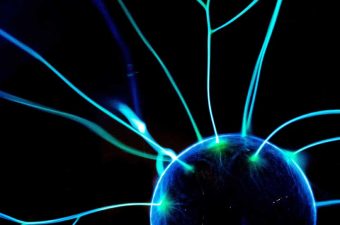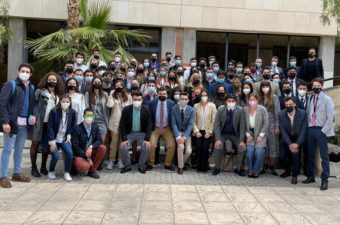With the rapid advances in generative AI, it’s natural to wonder whether computer science itself might become obsolete. After all, AI can now write fully functioning code in seconds with just a few prompts, and newer models can even assist in complex problem-solving.
According to Ikhlaq Sidhu, Dean of IE School of Science and Technology, the idea that AI can replace computer science misunderstands the relationship between the two fields.
AI isn’t replacing computer science. Actually, it’s making it more essential than ever.
AI Is Built on Computer Science

Generative AI systems don’t appear out of nowhere. They rely on complex algorithms and machine learning models—each designed, trained, and maintained by computer scientists with strong theoretical foundations.
Professor Sidhu explains:
“AI systems, including generative AI, need continuous development, optimization, and maintenance. This requires expertise in fields like data structures and software engineering—all core areas of computer science.”
In other words, AI is creating more opportunities for skilled professionals. As it becomes more efficient and widespread, new challenges emerge that only humans trained in computer science can tackle. Tasks like testing models, refining algorithms, or designing new system architectures still depend on human intelligence.
Infrastructure and Engineering: The Backbone of AI
It’s not just the algorithms that need attention. The hardware and software supporting AI—such as high-performance GPUs, specialized TPUs, cloud servers, and distributed systems—all require engineers to build, optimize, and maintain them. Without this infrastructure, AI models simply couldn’t function.
Software engineers are also key in integrating AI into real-world products by designing scalable, secure applications for millions of users. Even a simple AI-powered chatbot relies on a sophisticated, human-built system.
These areas of computer science are—and will remain—critical for years to come.
Human Expertise: AI Can’t Solve Complex Problems Alone

While AI can generate code and automate certain tasks, it lacks the reasoning, context, and critical thinking that human computer scientists provide.
AI can assist in routine coding, but human oversight is still essential for debugging, maintaining security safeguards, and ensuring reliability. More advanced projects—like system architecture, algorithm design, troubleshooting, and creative software development—remain firmly in human hands.
AI can replicate known concepts and patterns, but innovation still depends on human creativity and abstract thought.

Emerging Fields and Future Challenges
Generative AI has introduced new technical and ethical questions that are giving rise to entirely new areas of study.
According to Sidhu:
“AI-generated content creates risks such as misinformation and security threats, leading to new domains in computer science.”
Topics like AI bias, fairness, privacy, cybersecurity, and governance now require both deep technical expertise and a forward-thinking mindset. Professionals in areas like adversarial machine learning and AI ethics will be essential to ensure that future technologies remain safe, transparent, and trustworthy.
Computer Science Is More Than Just Coding
Many people think computer science is only about programming. In reality, it’s a field that encompasses logic, algorithms, system design, and theoretical foundations.
Areas like quantum computing, robotics, cryptography, and networking remain far beyond AI’s current capabilities. By mastering these fundamentals, computer scientists and engineers gain the adaptability to guide technological progress—including AI—responsibly.
Ultimately, they’ll ensure that innovation aligns with human needs and societal values.
A Future With AI Makes Computer Science More Important
AI isn’t replacing computer science—it’s amplifying it. The demand for professionals who can design, integrate, and improve AI systems is growing rapidly. Companies need experts who can optimize performance, interpret results, and solve complex challenges created by these new technologies.
Sidhu summarizes it best:
“While generative AI will change how computer science is practiced by automating routine tasks, the need for deep computer science expertise will only grow as AI creates new challenges and opportunities.”
For aspiring computer science students, this is an exciting time. AI may change how we work—but it won’t replace the need for human innovation.
If you’re driven by real-world problem-solving, computer science remains one of the most impactful and future-proof fields to study. The Bachelor in Computer Science and Artificial Intelligence at IE University equips you to do just that—building the skills to shape tomorrow’s technologies.
In an increasingly AI-driven world, computer science isn’t being replaced. It’s becoming more essential, more dynamic, and more exciting than ever.










